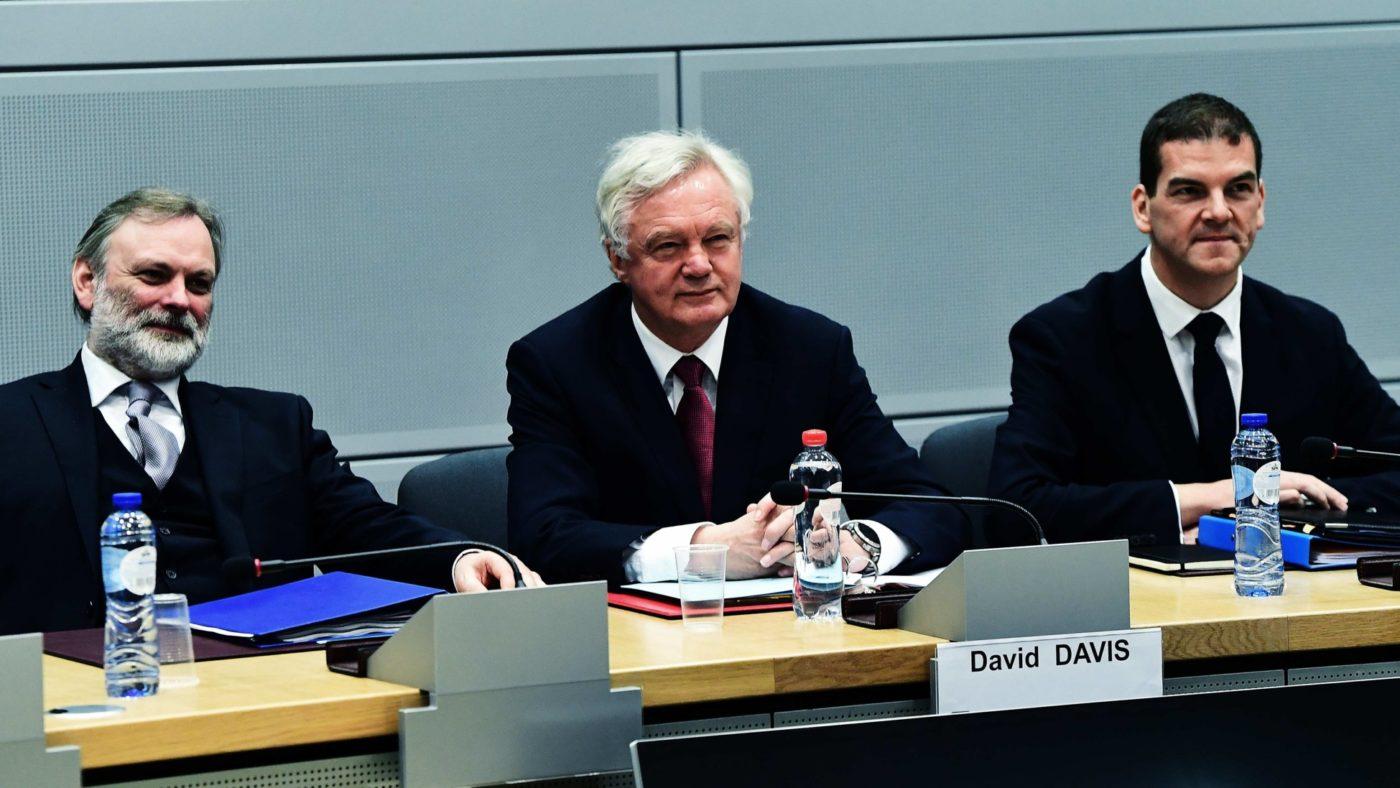There’s one thing that has become clearer during the Brexit talks: our decision to leave was the right one. While many on the Remain side leap on any gaffes made by the Prime Minister and her team, they wilfully ignore the glaring EU incompetencies which are being revealed to us during the course of the discussions.
But, then, bully tactics, lies and empty rhetoric are only to be expected from bureaucratic elites who have been given a bloody nose by Britain’s vote. More significant is what we are learning about the inefficiency and inflexibility of the EU.
Trade talks, to take just one example, are not set to begin until late March – over three months since Phase 1 of negotiations were completed. This is an outrageous waste of time, demanded by the EU so it can formulate its internal negotiating position – as if it hasn’t had enough time to sort this out already. This process is bound to be riddled with internal disputes and the competing interests of all the other 27 Member States. Disunity and sluggishness has characterised the EU’s history of trade deals so far, and is the reason why it is yet to establish an economic partnership with any of the fastest growing global economies.
Already we are hearing cries for “unity” from Macron and Tusk, as nations such as Hungary and Italy break rank to demand different things be included in a UK-EU trade deal. This splintering is not unusual: we saw it when the Wallonia region of Southern Belgium jeopardised the EU/ Canada Comprehensive Economic and Trade Agreement (CETA). The deal only just made it over the finish line.
Meanwhile, places such as Andalusia in Spain, Cyprus and the Portuguese island of Madeira are begging Eurocrats for money to cushion the Brexit blow, realising less money will be available to prop up their cash-strapped economies after we leave the EU.
French and German leaders continue to insist that our access to the Single Market be restricted, whereas others – such as Irish Taoiseach Leo Varadkar – request any trade deal is “as much like the current arrangement as possible”. But these two positions are irreconcilable and will require months of thrashing out. Needless to say, when March 22 arrives, and the trade talks finally start again, such disputes will continue to grow.
On top of this systemic slowness, the lack of original thought from the European negotiators is proving to be a huge problem. The UK is the EU’s single biggest export market, and failing to conclude a deal will have serious consequences for many European industries. The Germans are particularly sensitive to this. But at the moment EU negotiators risk pushing Britain away from the table by only offering two options – both of which are evidently unacceptable to us.
The EU’s Chief Negotiator, Michel Barnier, has clearly said the EU “won’t create a specific deal” for the UK. And the offerings so far – the EEA and CETA models – simply don’t meet Britain’s requirement for an extensive free trade agreement for both goods and financial services, without political entanglement.
The growing talk of a “No Deal” scenario is testament to the EU’s sheer incompetence. It is pushing away one of its most important trading partners, intent on hurting itself more than us, unable to grasp that it is in its own interests to get as good a trade deal as possible.
That’s why the EU needs an original and innovative approach, rather than relying on on precedents and “off-the-shelf” trade deals. Their floundering talks with the Chinese are an example of their over-reliance on existing trade models; their archaic negotiating tactics, are not fit for the 21st Century.
As long as Britain remains trapped within the Customs Union, it will have no choice but to sit on the sidelines watching countries such as India surging ahead. Brexit, on the other hand, will allow the UK to establish a strong economic partnership with India, and will put us in a fantastic position to benefit from emerging markets in the decades ahead.
Fortunately, Britain is already preparing and the Department of International Trade is hiring hundreds of experienced negotiators to prepare for these trade deals. It is essential these are ready to be signed as soon as possible after the Transition Period, so we can revitalise trading relationships with old allies and Commonwealth countries we have neglected during our membership of the EU.
But first, we must free ourselves from the EU’s short-sighted and self-harming approach to trade. This can’t happen soon enough.


